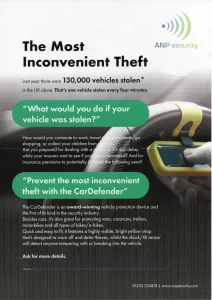On 28 October 2016, an employment tribunal decided that Uber drivers are workers meaning that they are entitled to paid holiday, the minimum wage and the right not to have unlawful deductions made from their pay.
What were the drivers claiming?
The case was brought by a group of Uber drivers alleging a number of claims against Uber, most significantly that unlawful deductions had been made from their wages, that they had not received the minimum wage and that they had not been given paid holiday.
Two of the drivers were selected as test Claimants. Before the claims could be judged in full, the key preliminary issue as to whether the drivers were workers or self-employed persons had to be decided. If found to be workers then the drivers were eligible to bring their claims whereas if they were self-employed they were not.
Uber’s arrangements
Uber consists of two entities, Uber London (ULL) and its parent company Uber BV (UBV) a Dutch company.
The contractual arrangements between Uber and its drivers are complex. It works as follows: UBV is said to be a technology platform that facilitates the provision of a taxi service as opposed to a company that is simply in the business of providing taxi services. ULL acts as an agent for the drivers and ULL’s agreement with the passenger states that the contract for the taxi service is between the driver and the passenger. UBV then contract separately with the driver and this agreement is stated to be governed by Dutch law.
At the end of the journey based on GPS data from the drivers phone Uber calculates a fare, the driver cannot charge any higher. The passenger pays UBV (which seems to contradict the stated relationship between the driver and the passenger) via the Uber app and then UBV pays its drivers weekly minus a “service fee” of 20-25% of the pay, for the use of the app.
Tribunal findings
The trouble that Uber had gone to in its written documentation to attempt to ensure its drivers could not be considered workers, did not convince the tribunal and appeared to make matters worse for the company. The tribunal referred to “fictions”, “twisted language” and quoted Shakespeare in relation to Uber’s witness, saying “the lady doth protest too much, methinks”.
Uber had made off the cuff comments that ran contrary to its stated positon. For example in evidence to the Transport Scrutiny Committee it had referred to drivers getting “commission” instead of referring to the drivers paying a percentage of their earnings as a “service fee”.
The judgment said it was unreal to say that Uber was a technology provider rather than in the business of transport. The tribunal also said Uber’s rating system (whereby a poorly rated driver can have his/her services terminated) effectively meant drivers had to be reliable i.e. in the manner of a worker. Despite Uber’s attempts to say that drivers and Uber worked together as independent businesses, the tribunal said it was faintly ridiculous to consider that a network of some 30,000 Uber drivers in London could genuinely be working all as small businesses.
The decision is not binding and may be appealed.
As is stands though, this judgment casts doubt on the ability of companies to use “gig economy” set ups to offer services at much lower costs than traditional models e.g. uber app v black cabs.
Article by:
Jenna Hunter | Director

